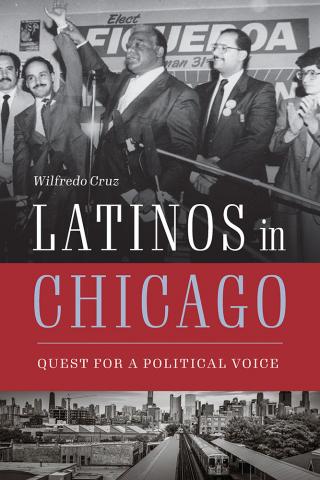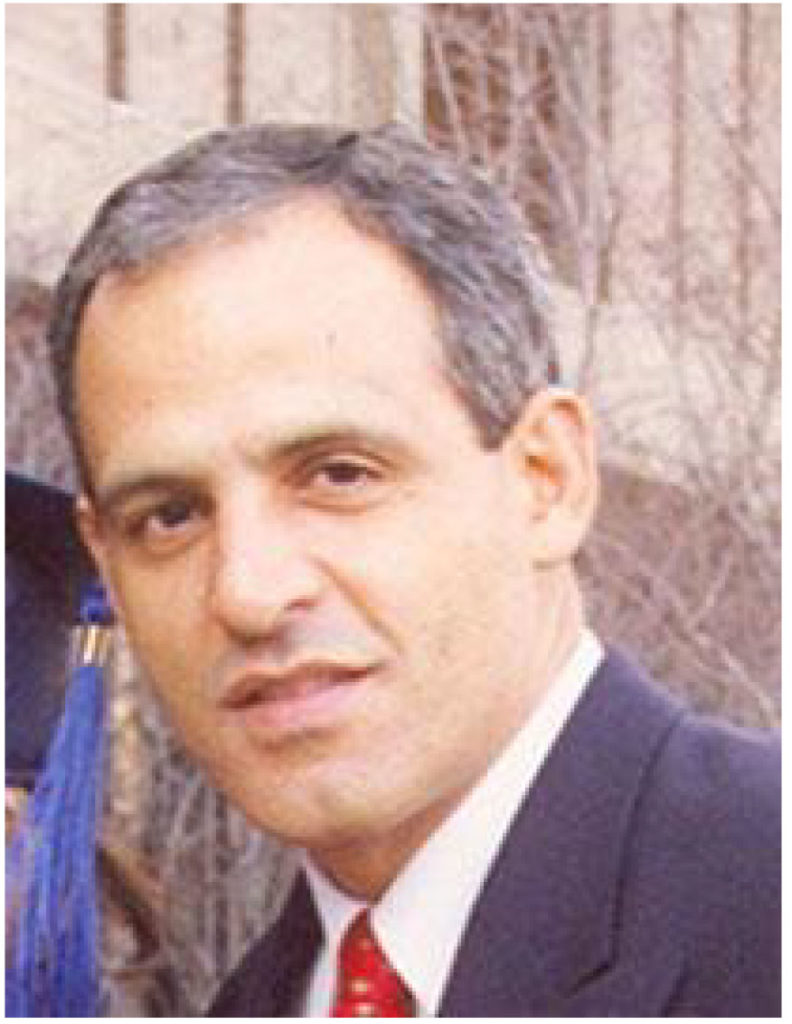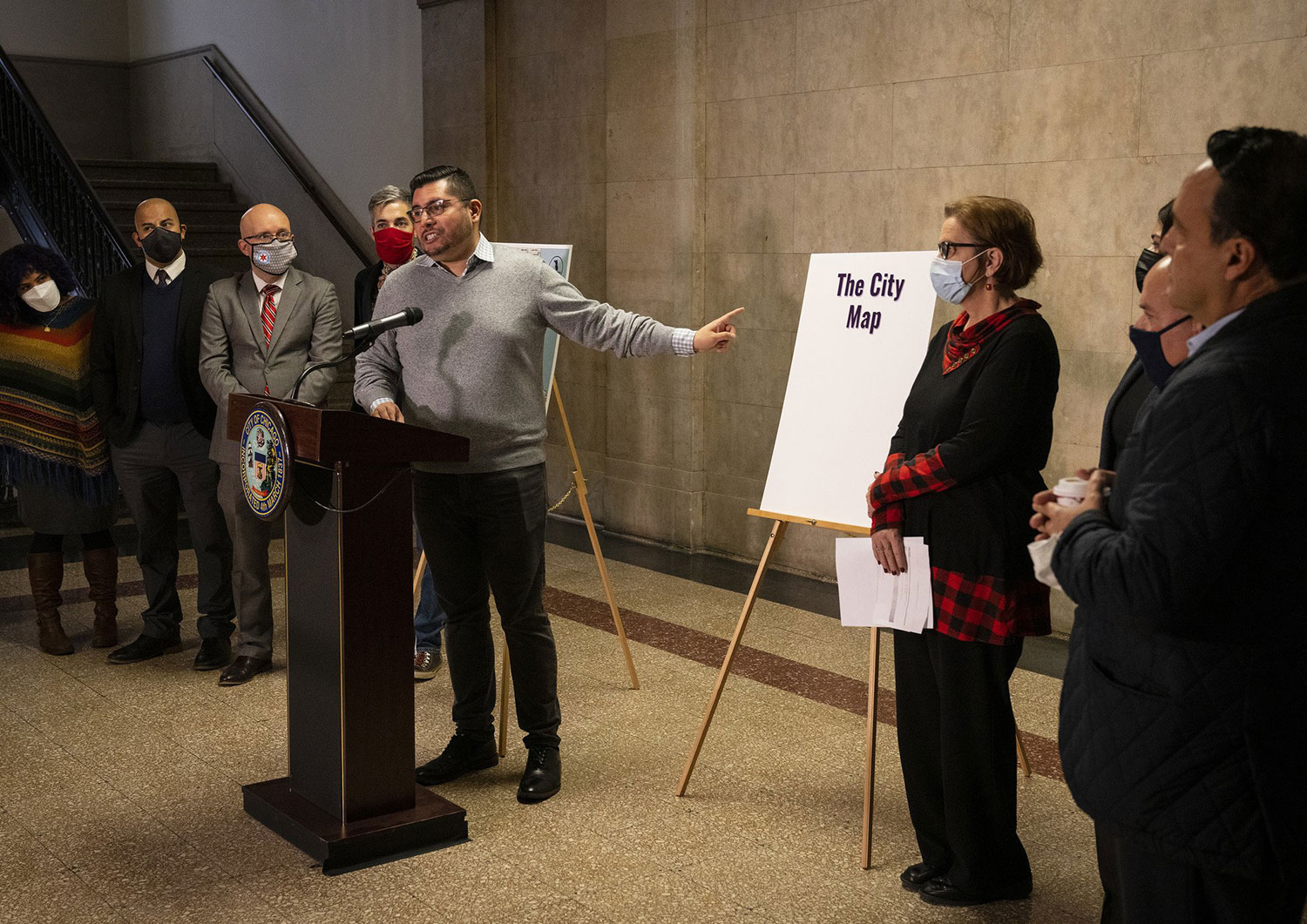Chicago may be a few months away from electing its first Latino mayor. Congressman Jesus “Chuy” Garcia announced his candidacy this month, and is already considered the front runner. That makes Columbia College professor Wilfredo Cruz’s new book Latinos in Chicago: Quest for a Political Voice, out this month from Southern Illinois University press, especially timely. According to Cruz, Latinos did not become a political force in Chicago until the mayoralty of Harold Washington (for whom Cruz served as an assistant press secretary). But they’re now the city’s fastest growing ethnic group, and are accumulating power at all levels of government: the city council, the county board, the state legislature and Congress. Is the mayor’s office next?

There were Latinos elected to office before Harold Washington, such as Joe Berrios to the state legislature, but you say that Latino empowerment really began under Mayor Harold Washington. Why is that?
Well, that’s when it started big time. I start off the book with Emilio Rodriguez, who ran for mayor of Chicago in 1911. He lost, and then later on, he became the first alderman. For Washington’s campaign, he solicited the Latino vote. When he won, for the first time you saw brown and black faces at City Hall. He appointed a number of people to very important positions, such as Maria Cerda, she was at the Mayor’s Office of Employment Opportunity, Benjamin Reyes, one of his top assistants. Jesus Garcia, he gave him a job in the Department of Water. Luis Gutierrez, gave him a big job in the Department of Streets and Sanitation. And then on top of that, he started actively campaigning to help Latinos get elected, he helped Jesus Garcia to become an alderman. I don’t think Jesus would have won without the black vote. So all of a sudden you start seeing the beginnings of political empowerment under Harold Washington.
Why were Latinos such an important constituency for Washington?
He knew we couldn’t win without appealing to a larger audience than just African Americans. He needed the African-American vote, the progressive white vote, and also the Latino vote. Latinos were the swing vote.
We go forward to Mayor Richard M. Daley. You talked about Latinos being the swing vote. They were supporters of Daley and he also had the Hispanic Democratic Organization. Can you explain how that shift took place?
I think they really saw how successful Harold Washington was soliciting the Latino vote. They kind of continued the same policy of bringing in Latinos. The only qualm I have with HDO is it’s more of a patronage army. I mean, they’re getting promotions and jobs and doing the mayor’s dirty work, campaigning for the mayor, and they were actually violating the Shakman consent decree, because that did away with patronage hiring and firing. These were 800 people who got city jobs. Al Sanchez was the director of Streets and Sanitation. Big HDO lieutenant. He went to prison for a couple years.
A lot of today’s leading progressive politicians are Latinos. We mentioned Chuy Garcia. We also have Alderman Carlos Ramirez Rosa, Anthony Quesada, he was just elected to the county board as a Democratic socialist. Why are Latinos in the forefront of progressive politics in Chicago?
They’re the second generation. I talked about the first generation. I’ve got one chapter, “The Fall from Grace,” where I talk about politicians who got caught up in corruption scandals. This younger, more progressive group of people are winning office and they’re very impressive. They call themselves progressives and independents and democratic socialists. They have fresh ideas. They love the ideas of Senator Bernie Sanders. They’re talking about affordable housing and rent control and bilingual education and immigrant rights. They’re talking about things that past aldermen weren’t talking about.

We talked about Delia Ramirez, who was just elected to Congress from the new Latino district on the Northwest Side. Why do you think Latinos got that second congressional district and what does it mean for the Latino political development?
Well, two (Latinos) were on the redistricting committee. One of them was state Senator Omar Aquino. They were very involved in making sure that district had a large percentage of Latino people and that they weren’t gerrymandered, like in previous times. And so I think that helped her. She won a district that was 47 percent Latino. She jumped in the race very early. She had the backing of Chuy Garcia, a lot of labor support. And so Delia’s also a fresh face on the political landscape. And the fact that she’s Guatemalan is very interesting. There were no Guatemalan politicians, and now you got Delia Ramirez and [Alderman] Andre Vasquez.
Do you see this as a sign that Latinos are the fastest growing political constituency in Illinois?
I think they are. It’s very interesting. Now the Asian American community is also making inroads. Mayor Lori Lightfoot just appointed the first Asian-American alderman to the city council. The Asians are just like the Latino community. They’re also trying to get to political points. They’ve been waiting for a long time, and they’re making some very impressive inroads.
Did you think that Latinos got enough seats in the ward remap?
Yeah, I think they did. They wanted three, and they settled for two. Politics is the art of compromise. Gilbert Villegas pushing for three was very, very stubborn. He called some of his colleagues “traitors.”
Chuy Garcia is now considered the front runner in the mayoral race. Did you expect to see a Latino mayor this soon?
He hasn’t won yet. You need some deep pockets. You need an army of troops who are going to work in the campaign: ringing doorbells, passing out your mailers, trying to get your name out there. You also need to engage in coalition politics. This city is one-third Black, one-third white and one-third Latino. Like (Harold) Washington, you have to be very charismatic in politics.
I think he started late. Mayoral elections are in February. Where are you going to raise $10 million? It remains to be seen. It would be great to have the first Latino mayor of the city of Chicago, but it takes a lot of work. You just can’t say, “I’m Latino, therefore, I need it.” You have to have a message that resonates with voters. What refreshing ideas are you bringing to the table? To say, “I’ve worked with Harold Washington,” that was almost 40 years ago. What have you done since then?
You talk about Blacks and Latinos being united under Harold Washington, but they’ve often been rivals since, most recently in the ward remap. How can the two communities work together?
One of the points I make in the book is that the Black community feels a little resentful that Latinos are now the second largest group in Chicago, they’ve overtaken African-Americans. There’s some concern that their concerns are going to be put on the backburner, and Latinos are now the front burner with all this attention. And African Americans believe that Latinos kind of rode the coattails of Harold Washington, that had it not been for Washington, they probably wouldn’t have been elected to office. I think some Blacks had resentment when Luis Gutierrez backed Richard M. Daley when he ran for mayor. There are possibilities for coalition building. And there’s also possibilities for misunderstandings and not getting along with each other. When Rahm Emanuel ran, the Black community voted for him in very large numbers, and then when this video came out, Laquan McDonald being shot 16 times, the Black community felt betrayed. I think they would have voted for Jesus Garcia had that video come out earlier.
A guy I go to church with told me he’s voting for Willie Wilson, because “the Latinos are getting too much power.”
There’s that resentment that Latinos are the second largest group in Chicago with almost 30 percent, where Blacks are 29 percent, and they’re making inroads — all these young people we were just talking about being elected. There’s this perception that, “Hey, we’re being left behind.” But you’ve got Lori Lightfoot as mayor, you’ve got Toni Preckwinkle as president of the (Cook County) Board, you’ve got State’s Attorney Kim Foxx. They’re in high profile offices. I don’t understand why they feel they’re being left behind.
Do you think Latinos are eventually going to be the largest ethnic group in Chicago? Are they going to surpass whites?
They probably will, yes, because their numbers keep growing. People coming into the city and more immigration. The white community is stabilized, the Black community is stabilized, and this is a community that just keeps growing.



